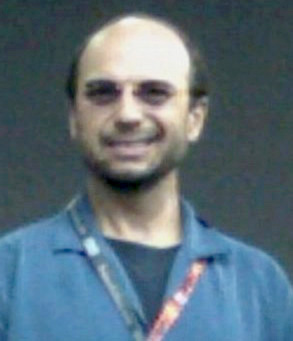Claude Gauthier | |
|---|---|
| Born | January 31, 1939 Lac-Saguay, Quebec, Canada |
| Occupation(s) | Singer-songwriter, actor |
Claude Gauthier (born January 31, 1939, in Lac-Saguay, Quebec, Canada) is a Quebec singer-songwriter and actor. [1] [2]
Claude Gauthier | |
|---|---|
| Born | January 31, 1939 Lac-Saguay, Quebec, Canada |
| Occupation(s) | Singer-songwriter, actor |
Claude Gauthier (born January 31, 1939, in Lac-Saguay, Quebec, Canada) is a Quebec singer-songwriter and actor. [1] [2]
Gauthier grew up in a family that enjoyed and performed music. His father, Almazor Gauthier, sang Sundays in the Catholic Mass and his mother, Antonia Bélisle, played piano. Listening to the classic French singers of the time on radio, such as Edith Piaf and Charles Trenet, inspired him as well. But his musical revelation came when he heard Félix Leclerc for the first time on the radio. From then on, he wanted to make music and, like Leclerc, sing simple, direct songs about everyday life.
In 1954 Gauthier moved to Montreal where he worked for three years in the warehouse of the record dealer Édouard Archambault. After that he worked as a wilderness guide.
All during this time he wrote songs and he was soon rewarded for his efforts. Encouraged to take part in a contest for singer-songwriters put on by CKVL, in Montreal, in 1959, he won first prize for "Le Soleil brillera demain" ("the sun will shine tomorrow").
He left his job and started singing in the coffee houses in Montreal accompanying himself on guitar. His songs from this period include: "Ton nom", ("Your Name") and "Le Grand six pieds" ("The Big Six-footer"). "Le Grand six pieds" was a big hit for him. It was based on memories of his early childhood, of the people, their struggle to make ends meet; it was a metaphor for the people of Quebec.
He was signed up by the Columbia Record company. Gauthier's first album was called Claude Gauthier chante Claude Gauthier (Col FS-531). It included the song "Le Grand six pieds", which earned him the 1961 Grand Prix du disque canadien, awarded by the Montreal radio station CKAC.
He took part in the 1962 Mariposa Folk Festival and in 1964 he sang at Carnegie Hall, New York, where he was warmly received. He shared the stage with Buffy Sainte-Marie, and Peter, Paul, and Mary. Gauthier and Sainte-Marie (who was born in Saskatchewan) exchanged tunes and co-wrote a song together. Sainte-Marie called her version "Until it's time for you to go" and Gauthier entitled his, "T'es pas une autre".
Gauthier's success reached into France as well, and in 1966 he performed in Paris at the Olympia with Gilles Vigneault, Pauline Julien, and Clémence DesRochers. The following year he again appeared at the Olympia this time with Monique Leyrac, Les Jérolas, and Les Feux-Follets.
At this time Gauthier started on another career, that of actor. He was the male lead in and wrote music for the film Entre la mer et l'eau douce (1967), which was directed by Michel Brault and starred Geneviève Bujold. [3] [4] The song "Genevieve" which Gauthier wrote for the film was an independent success. He also acted in CBC TV's Septième Nord in 1967.
Gauthier started to record for a new record company, Gamma, a company that was in the process of recording a new generation of performers, such as Louise Forestier, and Robert Charlebois, bringing Gauthier to the awareness of a new generation. Gauthier performed with this outing of new talent at Expo 67. He appeared in the film "Où êtes-vous donc? in 1968. [4]
This period in Gauthier's career was one that brought him to rock and roll and the politics that was in the air at the time. His album Cerfs-Volants (Gamma GS-158) came out in 1968 and won the Festival du disque award. It contained topical songs about world events, such as those that were happening in Vietnam.
During the next few years Gauthier recorded only 45s, but in 1972 his next album came out, Le Plus Beau Voyage (Gamma GS-158). It was recorded in France and it was one of his most successful recordings. A book of the same title containing his lyrics was published in Montreal in 1975.
Starting in 1973 Gauthier began to act in films. His first effort at this time was in Michel Brault's film Les Ordres (1974). This film has as a background the events of the October crisis of 1970, when the Canadian Parliament promulgated the War Measures Act . In this film Gauthier plays an unemployed father who is arrested during the crisis. [4]
The other films he acted in during this period were: Partis pour la gloire (1975) directed by Clément Perron for which Gauthier also composed the theme song "Les Beaux Instants", which appears on the LP of that name (1975, Presqu'Île PE 7500). And, he also acted in La Piastre (1976) directed by Alain Chartrand.
During the rest of the 1970s Gauthier devoted himself to music, starting with a series of performances at the Outremont Theatre in 1975. He performed at the Festival of French Song in Strasbourg (France) in 1977. His next album, Ça Prend des Racines (1977) — Presqu'île PE-7506 was successful but his singing career slowed down in the following years.
He sang with Félix Leclerc on Leclerc's album My son in 1978, and in 1982 he sang on Fabienne Thibeault's Les chants aimés. He did not put out another album under his own name until 1984's Tendresses.o.s.
Although Gauthier did continue to perform as a singer, he performed only occasionally and often with other musicians, such as the 1985 tour Trois fois chantera with Claude Léveillée and Pierre Létourneau. He also appeared at the Festival de St-Malo (1989). But these efforts were all in the background; his primary focus was on acting.
He appeared in Gilles Carle's La guêpe (1986), François Labonté's Henri (1986), [5] Louise Carré's Qui a tiré sur nos histoires d'amour (1986), Yves Dion's Les Enfants de la rue (1987), Michel Brault's short drama L'Emprise(1988) (once again with Geneviève Bujold), and Robert Ménard's L'Homme de rêve (1991). He also composed the music for Alain Chartrand's film Un homme de parole (1991).
Although he took part in the Montreal Francofolies in 1990 and put out his first CD, Planète coeur, in 1991 (Transit TRCD-9101), Gauthier turned his career toward television. He appeared in Arthur Leblanc's Arthur (1991) a documentary about the Acadian violinist Arthur Leblanc. And he also appeared in several Canadian TV series, including Chambres en ville (1989) and Bombardier (1992) a TV mini-series.
In the following years he put out four CDs: L'Agenda (1993, Transit TRCD-9105), Quebec-Love (a compilation, 1994, Gamma GCD-504), Au Temps Des Boîtes à Chansons (recordings made in 1962, and reissued in 1998), and Jardins (1998 — GSI Musique GSIC-989).
In the same year that Jardins came out, Gauthier joined younger musicians, Daniel Boucher, Sabrina Bisson, and Marie-Michele Desrosiers in a concert commemorating the tenth anniversary of the death of Félix Leclerc; the concert was called Le 08-08-88 à 8h08.
In 1999, Gauthier appeared in the critically acclaimed film by Michel Brault, Quand je serai parti... vous vivrez encore (English title: The Long Winter).
In November 2000 Gauthier received the Prix Hommage of the SOCAN (Society of Composers, Authors and Music Publishers of Canada) for a lifetime of creativity. His 14th album L'homme qui passait par là appeared in March 2001. Following that album a concert performance by the same name (L'homme qui passait par là) was presented at the Corona Theatre in Montreal and also at the Cabaret du Capitole in Quebec City in March 2002. This performance included a string quartet, and host of projections from film archives as well as exceptional dramatic lighting; it underscored Gauthier's 40-year career.
Starting in 2003 a series of retrospective recordings came out, Le plus beau voyage de mes chansons 1959–1972 (GSI Musique GSIC-905) in which Gauthier reinterpreted his previous hits with a new group of musicians. And along with Daniel Boucher, Gauthier appeared in another homage to Félix Leclerc at the Fête nationale du Québec, 2003, at the Parc Maisonneuve, Montreal. Gauthier continues to perform as a singer-songwriter and as an actor.
Georges Dor was a Québécois author, composer, playwright, singer, poet, translator, and theatrical producer and director.
As a cosmopolitan province, Quebec is a home to varied genres of music, ranging from folk to hip hop. Music has played an important role in Quebecer culture. In the 1920s and '30s, singer/songwriter Madam Bolduc performed comedic songs in a folk style with Irish influences. Quebec's most popular artists of the last century include Félix Leclerc (1950s), Gilles Vigneault (1960s–present), Kate and Anna McGarrigle (1970s–present) and Céline Dion (1980s–present).

Gilles Vigneault is a Canadian poet, publisher, singer-songwriter, and Quebec nationalist and sovereigntist. Two of his songs are considered by many to be Quebec's unofficial anthems: "Mon pays" and "Gens du pays", and his line Mon pays ce n'est pas un pays, c'est l'hiver became a proverb in Quebec. Vigneault is a Grand Officer of the National Order of Quebec, Knight of the Legion of Honour, and Officer of the Ordre des Arts et des Lettres.

Félix Leclerc, was a French-Canadian singer-songwriter, poet, writer, actor and Québécois political activist. He was made an Officer of the Order of Canada on December 20, 1968. Leclerc was posthumously inducted into the Canadian Songwriters Hall of Fame for his songs "Moi, mes souliers", "Le P'tit Bonheur" and "Le Tour de l'île" in 2006.

Daniel Lavoie is a Canadian musician, actor, and singer best known for his song "Ils s'aiment" and the role of Frollo in musical Notre-Dame de Paris. He releases albums and performs on stage in Canada and France and tours in Canada and Europe.

Pierre Lapointe is a Canadian singer-songwriter. His work largely follows in the tradition of French chanson, though he is influenced by modern pop music. Defining himself as a "popular singer", he has built an egocentric persona of a dandy onstage, but says he does this mostly to deflect attention from himself. His records have found critical and commercial success in Canada. His regular tours in France ensured him a growing popularity as well as critical recognition.

Fabienne Thibeault is a French Canadian singer. She is particularly known for her role in Starmania. Thibeault has released numerous albums over her career. She has been the recipient of two Félix Awards.

Martine St. Clair is a Canadian singer from the province of Quebec. She has released numerous albums in a career that has spanned over two decades.

Damien Robitaille is a Canadian musician from the village of Lafontaine, Ontario in the Georgian Bay area, two hours north-west of Toronto. He is a Franco-Ontarian musician whose career is mainly based in Quebec, where he has lived since 2003.

Étienne Drapeau is a Canadian former ice hockey player. He played as a centre in QMJHL, ECHL, AHL, UHL and WCHL leagues and was selected 99th overall by the Montreal Canadiens in the 4th round of the 1996 NHL Entry Draft.

Michel Brault, OQ was a Canadian cinematographer, cameraman, film director, screenwriter, and film producer. He was a leading figure of Direct Cinema, characteristic of the French branch of the National Film Board of Canada in the 1960s. Brault was a pioneer of the hand-held camera aesthetic.
Between Salt and Sweet Water, also known as Drifting Upstream, is a 1967 Québécois film directed by Michel Brault, co-written by Brault, Gérald Godin, Marcel Dubé, Claude Jutra and Denys Arcand.

Christine Charbonneau was a French Canadian singer and songwriter.
Pierre Florent Brault was a Quebec film and television composer, who is best known for creating theme music and songs for the popular children's TV series Passe-Partout. He wrote music for many films created by the National Film Board of Canada (NFB) and worked with directors Gilles Carle and Claude Jutra.

Yann Perreau is a Canadian singer songwriter from Quebec specialising in rock-electro music. Between 1994 and 1999, he was a member of Doc et les Chirurgiens, before becoming a solo artist.
Hubert Lenoir is the stage name of Hubert Chiasson, a French Canadian, singer, musician and actor from Quebec City, Quebec. His debut solo album Darlène was a shortlisted finalist for the 2018 Polaris Music Prize.

Salomé Leclerc is a Canadian singer-songwriter from Quebec.
Renée Claude was a Canadian actress and singer who was known as an interpretive singer, particularly of songs by Stéphane Venne, Michel Conte, Georges Brassens and Léo Ferré.

Michel Rivard is a singer-songwriter and musician from Quebec, born in Montreal. His father, Robert Rivard, was an actor. Michel began his career at an early age appearing in a Canadian television series and in TV commercials.